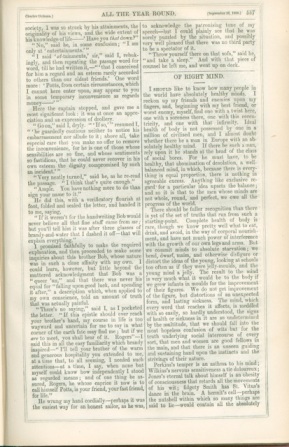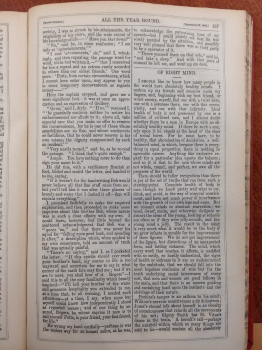By J. T.
All the Year Round, a Victorian periodical by Charles Dickens, was published weekly throughout the United Kingdom from 1859 to 1893. All the Year Round replaced Dickens’s former magazine, Household Words, which focused on social issues of the time, after Dickens had a dispute with his publishers, Bradbury and Evans. All the Year Round included serialized novels, having “the opening page always contain[ing] one of the two serial installments of novels then running” and proved a “vehicle for novelists” rather than journalists (Allingham). All the Year Round also emphasized foreign and cultural affairs, as compared to the issues Household Words focused on, particularly those of the poor and working class (Drew 10). The Woman in White first appeared in forty weekly installments in All the Year Round, from 26 November, 1859, until 25 August, 1860 (Bachman and Cox 41). All the Year Round dealt with cultural affairs similar to those discussed in Wilkie Collins’s The Woman in White, topics such as insanity, and the institutionalization of the insane. In “Of Right Mind,” an article published in All The Year Round, Volume 3, on September 22, 1860, the author challenges the Victorian view of insanity, claiming perfect mental health does not exist, a hefty statement considering the common Victorian mind set on insanity. Continue reading


